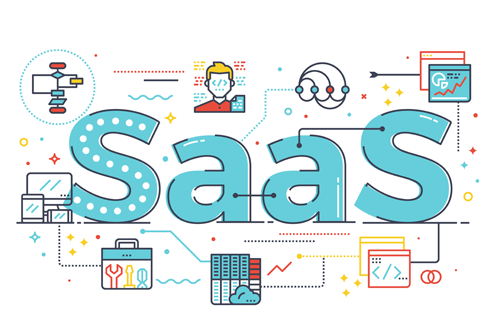
In the Land of Software as a Service, Service is King
Adoption of Software-as-a-Service (SaaS) is growing exponentially in almost every industry. Instead of having to buy, build and maintain costly technology infrastructure, SaaS allows companies
The key to finding opportunities to enhance the guest experience is to focus in on the things that guests secretly crave.
—Justin DeRise
Before we talk about what is important to an enhanced guest experience, we should probably level-set on what is a standard guest experience. We are all very familiar with it but let’s review. First, you make your reservation. Then you travel to the hotel where there is a specific check-in time. You get out of the taxi, head across the lobby and, very often, wait in line at the front desk. The front desk clerk will review your
amenity options with you, give you a key, and point you to the elevators. During your stay you may use the room phone to call for room service. On day of check out, you’ll need to leave by a specific check out time and you will stop at the front desk to review your bill on the way out. However, if there is a line, you may just leave and figure that it not worth it to wait just to review the bill.
Now, you might say that doesn’t seem too bad. But if every hotel is offering the same thing, then perhaps there is an opportunity to make it better and differentiate your hotel amongst the competition. The key to finding opportunities to enhance the guest experience is to focus in on the things that guests secretly crave – the three C’s: Communication, Convenience and Choice. Satisfy the guests needs for all three of these and you are on your way to greater differentiation and incremental revenues.
(1)
Airbnb is a disruptor in the lodging industry and it’s not just because they have tapped in a new market. The truth is that people have been renting homes, apartments and cottages for years. So what are they doing differently? Airbnb is great at guest communications. The company itself doesn’t do the communicating – they have just set up the technological toolsets so that once you make your reservation, you are in constant communication with the host. The effect of this constant “touching base” is that you, as a guest, feel much more comfortable with this event into the unknown – an overnight stay somewhere far from home. What can hotelier’s learn from this?
Be sure to e-mail and message customer post reservation/pre-stay. Ideally, you should give them real information that is relevant, such as room readiness. We can’t always control our arrival time and often we arrive well before official check-in. An e-mail, generated by your PMS, that indicates that their room is ready and they can select an early check-in takes an enormous amount of pressure off the guest’s shoulders. And when their room isn’t ready, letting them check bags and then receive an automatic e-mail from the PMS when the room becomes ready lets the guest explore the city without having to guess about room status.

(2)
One of the paradoxes of hotel service is that, physically, hotels are set up so that the staff is at the center of things and the guests go to them to get anything done.
But given new technology, things are changing. For example, if you go to an Apple store, where is the checkout register? Where is the line? The staff goes to where the guest is. Mobile technology allows customers (guests) to experience a location without the check-out desk being the center of the universe. That is called guest convenience. The mobility of the staff – or of the guest’s own smartphone – means that the transaction can happen on the guest’s own terms. For example,
if you offer a mobile check-in option, then the part of the front desk conversation that revolves around upselling room upgrades becomes a very non-pressure sales situation. The guest can peruse room options in the taxi at their convenience without the time pressure that comes with people waiting in line behind you. Look into all the processes your hotel requires and ask yourself – is this for the benefit of the guest or is it really for the convenience of the hotel and staff?
(3)
Sometimes you are on a business trip to a location you’ve been to too many times. Sometimes you are with your spouse and three kids overloaded with luggage.

Sometimes you are on a business trip to a location you’ve been to too many times. Sometimes you are with your spouse and three kids overloaded with luggage. Sometimes your flight was delayed and you had to sit on the tarmac for hours and you are exhausted. Sometimes you are arriving for an amazing resort vacation and you just want to be
pampered. There is no single way that even one person always arrives to a hotel. So why is the arrival process restricted to one method in most hotels? Give your guests choice. Let them check in via their phone if that expedites their arrival to their room. But also provide a kiosk for those who want to quickly pick up key and avoid the line.
And, of course, provide the full-service option of a staff member – but give your staff a PMS on a tablet so the guest can be greeted at the airport, in the lobby, at curbside or even on the arriving group bus. On day of check-out, let guests review their bill on their own phone so they don’t have to stop at the front desk (which also informs your housekeeping staff that the guest has actually left the building!). Better yet, give them the choice of check-out time if your occupancy for the next day allows for it. Choice conforms to your guests’ different situations and makes their arrival best for their individual situations.
In summary, if you want to truly make your guest experience better, don’t just put chocolates on the pillow. Remember the three C’s. Look into and question all of your guest touch-points and ask yourself – am I really serving my guests’ true needs?

Adoption of Software-as-a-Service (SaaS) is growing exponentially in almost every industry. Instead of having to buy, build and maintain costly technology infrastructure, SaaS allows companies

According to a recent study from Hospitality Technology Magazine, hotel spending on technology will increase in 2015. Year over year, 2104 budgets nearly

In today’s fast-paced and highly competitive hospitality industry, having a robust Hotel Property Management System (PMS) is no longer a luxury but a necessity. Modern


See how StayNtouch’s Cloud PMS, Guest Mobility, and Guest Kiosk solutions deliver better results for hotels through better front & back of house communication, increased mobile touch-points, more revenue and operational efficiency, and unlimited interfaces.
Your demo will include how to:

Manage and Set Tasks Across Your Departments

Ensure Guest Satisfaction & Safety With Contactless Check-in Options

Automate Easy Upsells & Monetized Early/Late Checkouts

Set & Manage Rates/Availability

Integrate With Tools and Platforms Essential
to Your Hotel
And More!